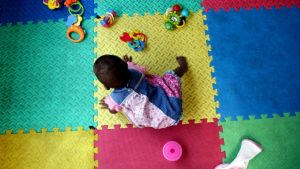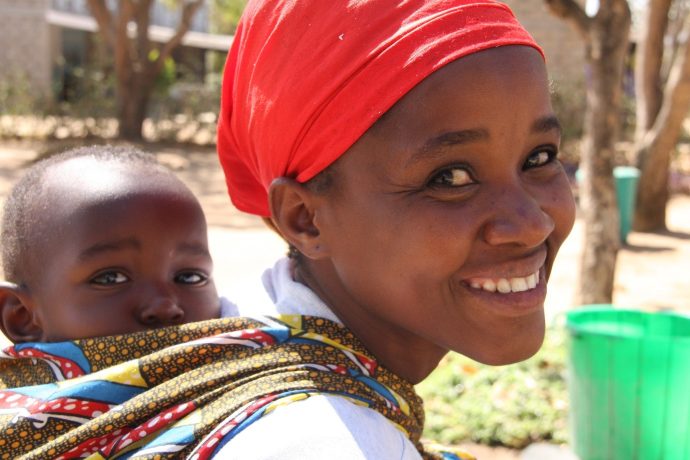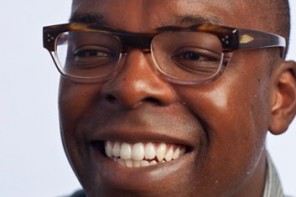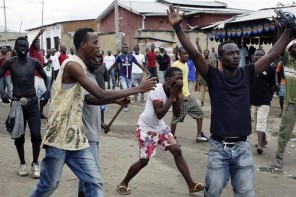“When I first came here I think a week later, then a child came through the bin I cried. I just broke into tears. Can somebody put a child in a bin just like that. But the child had a note that read: I love you my child. It was touching”- Care worker, Door of Hope.
Created in 1999 by the South African pastor Cheryl Allen, the Door of Hope has since then been a safe-haven to over 1500 babies, offering not only a home but a better future to abandoned new-borns in South Africa. As an alternative to dumping unwanted babies in drains, Cheryl Allen came up with the idea of creating a ‘hole in the wall’ where mothers could leave their unwanted babies any time of the day. The moment the child is placed in the stainless-steel bin, an inbuilt sensor system notifies the care workers at the church house of the baby’s arrival. Ideally this method seeks to preserve the anonymity of the ‘donor’ but other babies have been brought in personally by their mothers or have come through other means such as the police, community members, hospitals or clinics.

UNICEF and the World Bank report, in Africa there are 60 million orphaned and vulnerable children with an estimated 12.3 % of all children in sub-Saharan Africa being orphans. In 2003 alone, more than 16 million children were orphaned. In the same year over 800,000 children became newly orphaned in Nigeria alone. The problem of child abandonment is a disheartening situation faced by numerous communities across the continent daily. The high levels of poverty, little or no family support, unemployment, mass urbanisation, rape etc. have reportedly increased the vulnerability of young women especially in the urban areas, who resolve to child abandonment as a survival strategy after being confronted with unwanted or unplanned pregnancies. Usually, these new born babies are abandoned in local dumping grounds or drains along the streets or in pit toilets and left for dead by their mothers. The lucky ones are found by good Samaritans who turn to local orphanages for further assistance. These financially handicapped orphanages are forced to reach out for help from the local government, good-will organizations or private individuals, to meet the needs of the children. This assistance is more often than not, very slow and quite hard to get.
Michael Mutie believes giving back was never more rewarding
Interestingly, Dee Blackie, a consultant to the National Adoption Coalition of South Africa researched on child abandonment in the country and found that, both child abandonment and the decline in adoption are influenced by indigenous African ancestral beliefs. The situation in South Africa is said to have become more urgent with abandonment continuing to increase and adoptions decreasing by as much as 50% in recent years. It was found that some mothers and community members believe that, in the eyes of their ancestors, to abandon a child is better than formally relinquishing their rights as parents so that the child can be adopted.
“Formally placing a child up for adoption is seen as a conscious act, and similar to the choice of abortion, amounts to the rejecting a gift that the ancestors have given you. Many young women believe that the punishment for doing this could be extreme suffering and bad luck and in some cases, they believe they may even be rendered infertile as a result of their actions” explains Blackie. Other circumstances such as depression, high levels of stress possibly due to how the child was conceived such as rape, or that the mother had been abandoned to herself by the father of the child or her own family, which is often the case, were found to be contributing reasons for abandoning the baby. In this instance, the mother could sacrifice something to call her ancestors, and then when they appear, apologize to them at which point they could choose to forgive her.
Furthermore, traditional healers in South Africa claim they can also help a family who chooses to adopt a child, through a process called ‘ubigile’ or the announcing of the child to the ancestors. “…bringing a child with an unknown ancestry into a family is thought to cause problems for both the adoptive family and the child. Ancestors are important for guidance and support. A child who does not know their ancestors – the decedents of their father’s line – will live a difficult life and may also not be able to fulfil many of their traditional roles and rituals in their family…” adds Blackie.
Discover how Melting Pot Development is putting a smile on faces
Despite the adoption crisis, some children at the Door of Hope are adopted mostly by foreign families and the rest are brought up under the overburdened public welfare system in South Africa. Georgina Smith was the first baby to be left in the hatch at the Door of Hope and was later adopted by an American family. In 2016 she returned to volunteer at her former home. “I was definitely full of questions, just regarding my mother and South Africa and what the Door of Hope actually means to me because it has been such a big part of my life. In understanding how it works now, I feel like I can let go” she says. The Door of Hope Bin concept continues to inspire organizations, individuals and groups in other countries as well as locally.
Child abandonment is a growing social crisis across Africa which requires urgent attention. This unfortunate practice tends to trigger and fuel other societal ills such as child trafficking and child labor thereby, jeopardizing the future of an entire generation and Africa at large. An estimated 1.2 million children, mostly orphans, are trafficked every year according to the international advocates for children. Raising awareness within the community and providing solutions to underlying causes is crucial to better manage this situation. Orphans too, have the right to a good life and a secured future. Africa cannot talk of prosperity if there is no holistic advancement today. All groups within the society must be taken into consideration, even the so called “Rejects”, in order to facilitate and guarantee that highly anticipated bright future for the continent.





